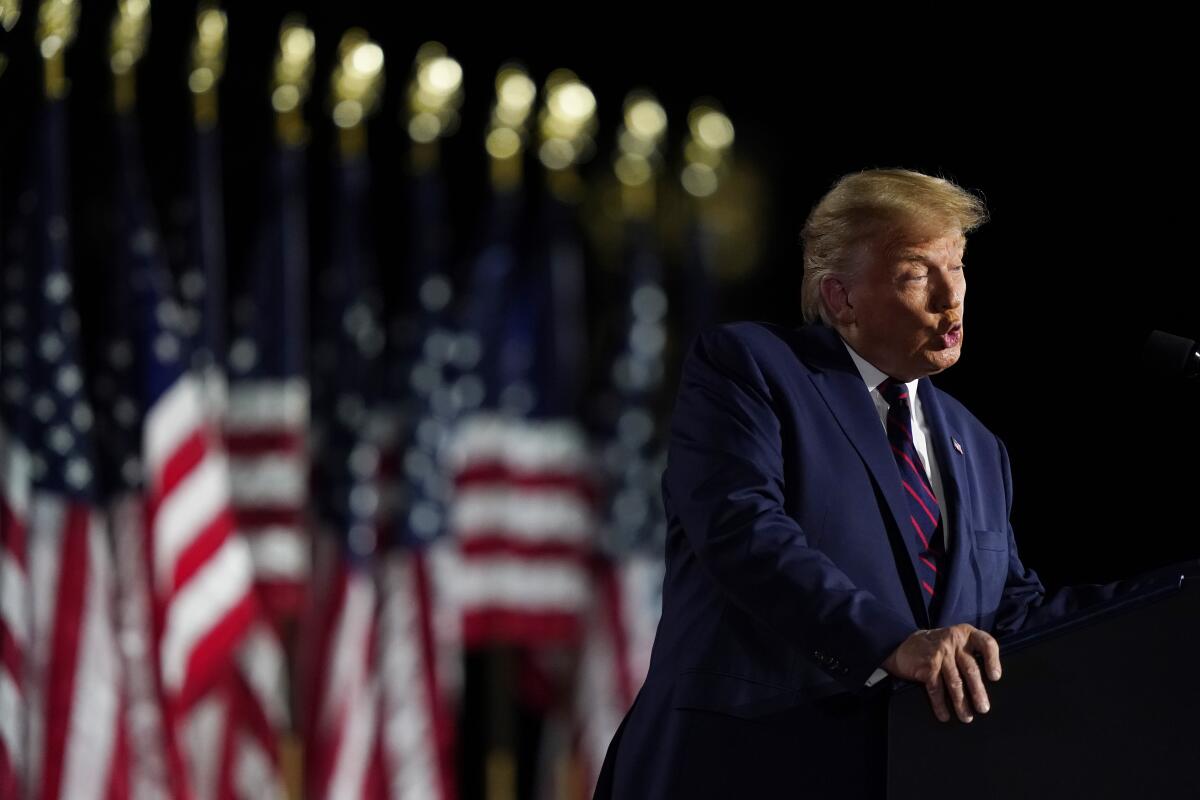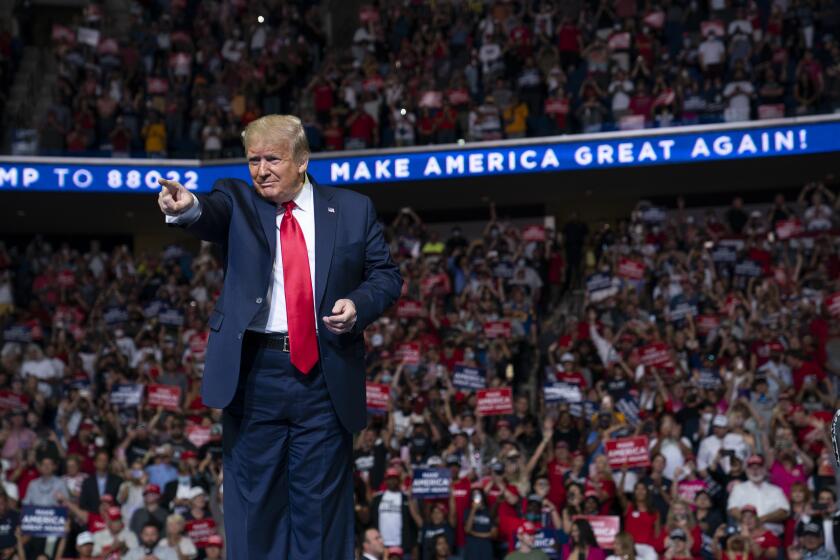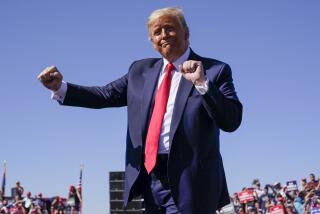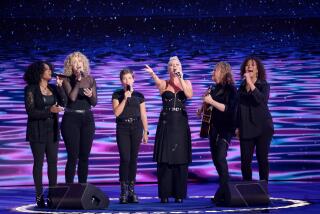Leonard Cohen estate exploring legal options against Trump for playing ‘Hallelujah’ at RNC

- Share via
“God Bless the U.S.A.”? Sure.
“Nessun Dorma”? A conspicuously romantic choice given the setting, but OK.
But “Hallelujah”? Leonard Cohen’s “Hallelujah”? The “Hallelujah” about — let me check my notes here — a “baffled king”?
I don’t know who programmed the music for the grand fireworks finale of the Republican National Convention on Thursday night, but clearly they hadn’t listened to the words of Cohen’s signature song, which uses its gorgeous melody — “the fourth, the fifth, the minor fall and the major lift,” as the lyric itself puts it — to deliver some stark thoughts on the inevitable disappointment of being alive.

Allow me to quote the Canadian songwriting legend, who died in November 2016 (just one day, as it happens, before Donald Trump’s fateful election):
Maybe there’s a god above
But all I ever learned from love
Was how to shoot somebody who outdrew you
Elsewhere in the tune, which first appeared on his 1984 album “Various Positions,” Cohen describes a broken throne and a woman bathing on a roof; he even goes out of his way to take note of somebody’s flag on a marble arch — and to remind us that “love is not a victory march.”
Unless President Trump is twice as smart as he seems to be, it’s hard to believe he fully considered the cognitive dissonance of using “Hallelujah” not once but twice Thursday as he stood onstage amid a forest of American flags — first in a prerecorded rendition by the Grammy-winning pop-soul singer Tori Kelly, then in a live performance by Christopher Macchio, a hammy opera singer who chewed through the song from his perch on the White House balcony as the Trump family gazed up at him.
Most politicians, even if they have the legal right to play a song at a rally, will not risk the PR backlash of an artist objecting. Not President Trump.
The president, of course, is hardly the first person to misappropriate “Hallelujah,” which has turned up as would-be feel-good fodder in countless films and TV shows, including “The West Wing,” which featured Jeff Buckley’s definitive interpretation, and “Shrek.”
And Trump has a long history of using incredibly bleak songs to commemorate his moments of triumph. Remember when he capped his acceptance speech in 2016 with the Rolling Stones’ “You Can’t Always Get What You Want”? (In case you’ve forgotten, that’s the one in which Mick Jagger takes someone’s “bloodstained hands” as an indication that she’s “practiced at the art of deception.”)
Or when he and the first lady danced to “My Way” at his inaugural ball? (“There were times, I’m sure you knew / When I bit off more than I could chew.”)
Earlier Thursday, Ivanka Trump took part in the family tradition when she came onstage to Elton John’s “I’m Still Standing” — a more optimistic tune that nonetheless opens with images of a “cold lonely light” and “the wreck you hide behind that mask you use.”
A mask! Given how little care seemed to have been applied to social distancing at this crowded event, you again had to wonder if the Trumps had spent more than 10 seconds thinking through the implications of these selections.
On Twitter, Cohen fans expressed outrage at Trump’s use of “Hallelujah”; a representative of the Cohen estate said the estate had “specifically declined” the convention’s request to use the song and was exploring its legal options. In a since-deleted tweet, Kelly said, “All i know is neither myself nor my team received a request” to play her recording, which appeared in the 2016 children’s movie “Sing.”
But as The Times recently reported, the president’s campaign may have procured what’s called a blanket license that would allow him to use certain songs at public events without having to seek case-by-case permission.
Which means that, even for Trump’s detractors, there’s little point in getting mad about how “Hallelujah” was deployed at the RNC. Better to revel in the absurdity of a few lines bellowed by that slice of operatic beefcake as he sent his voice — and no doubt some respiratory droplets — out over the heads of the first family.
“I did my best,” he sang, “but it wasn’t much.”
More to Read
The biggest entertainment stories
Get our big stories about Hollywood, film, television, music, arts, culture and more right in your inbox as soon as they publish.
You may occasionally receive promotional content from the Los Angeles Times.












